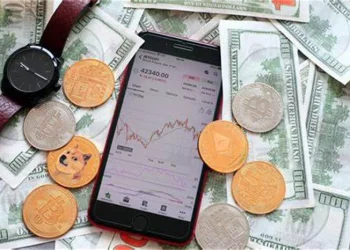Cryptocurrency wallets have become an essential part of the digital asset ecosystem, offering users a way to store, send, and receive cryptocurrencies safely. As the crypto space evolves, the security of these wallets is becoming an ever more important topic of discussion. Coinbase, one of the largest and most well-known cryptocurrency exchanges, offers its own digital wallet—the Coinbase Wallet.
For many cryptocurrency users, particularly beginners, Coinbase is a trusted name in the industry. But when it comes to storing your assets in the Coinbase Wallet, the question arises: Is the Coinbase Wallet safe?
In this article, we will thoroughly explore the security aspects of the Coinbase Wallet, its features, and how it compares to other wallet solutions. By the end of this analysis, you should be able to make a more informed decision about whether to use Coinbase Wallet for storing your cryptocurrencies.
What is Coinbase Wallet?
Before delving into its security features, let’s first define what the Coinbase Wallet is. Coinbase Wallet is a non-custodial wallet, meaning that it gives users control over their private keys. This sets it apart from the Coinbase exchange, which is custodial in nature and holds users’ private keys.
Coinbase Wallet is a standalone mobile application (available on iOS and Android), separate from the Coinbase exchange. It allows users to store not only popular cryptocurrencies like Bitcoin (BTC) and Ethereum (ETH), but also a wide range of other digital assets, including ERC-20 tokens and NFTs (non-fungible tokens).
Since Coinbase Wallet is non-custodial, you, the user, are the only one who has access to your funds. This means that Coinbase Wallet does not have access to your private keys, and neither does Coinbase itself. The company cannot access your funds or initiate any transactions on your behalf.
However, with this increased control comes the responsibility of safeguarding your private keys and recovery phrase. If you lose access to your private keys or recovery phrase, you may lose access to your funds permanently.
Coinbase Wallet vs. Coinbase Exchange
Before discussing the safety of the Coinbase Wallet, it’s important to highlight the distinction between the Coinbase Wallet and the Coinbase exchange.
Coinbase Exchange (Custodial Wallet): When you store your cryptocurrencies on the Coinbase exchange, the company controls your private keys. Although Coinbase employs strong security measures to protect user funds, this custodial model means that users are entrusting the company with their assets. If Coinbase were to suffer a breach or be compromised in some way, your funds could be at risk, though the company’s insurance coverage may protect you.
Coinbase Wallet (Non-Custodial Wallet): The Coinbase Wallet, on the other hand, is a non-custodial wallet, meaning you have complete control over your funds. This eliminates the risk of an exchange-related breach affecting your wallet, but it also places the responsibility for securing your assets squarely on your shoulders.
In short, Coinbase Wallet provides more autonomy and control, but it also means you are solely responsible for protecting your assets.
Security Features of Coinbase Wallet
Now, let’s dive into the security features that Coinbase Wallet offers to ensure the safety of users’ funds.
1. Private Key Control
One of the primary security benefits of using the Coinbase Wallet is that it is a non-custodial wallet, meaning users have full control over their private keys. The private key is essentially the password to your crypto wallet—it’s what allows you to access and manage your cryptocurrencies.
Since Coinbase Wallet is non-custodial, your private key is stored on your device, and you alone have access to it. This gives you greater control over your funds. Importantly, no one at Coinbase (or any third party) has access to this private key. If you lose your private key or recovery phrase, you will lose access to your funds.
2. Recovery Phrase (Seed Phrase)
When setting up a Coinbase Wallet, users are given a recovery phrase (also known as a seed phrase). This phrase is a series of 12 or 24 words that can be used to recover your wallet if you lose access to your device, your private key, or your login credentials.
The recovery phrase is a critical component of Coinbase Wallet’s security. It’s the only way to recover your funds in the event of device loss, theft, or if you forget your private key. Coinbase advises users to store this recovery phrase securely, offline, and never share it with anyone.
Since the recovery phrase grants access to your funds, it’s essential to keep it private and safe. Losing it or exposing it to a malicious actor could result in the permanent loss of your crypto assets.
3. Encryption
Coinbase Wallet uses encryption to protect sensitive data. The private key and recovery phrase are encrypted and stored securely on your device. This means that even if your device is compromised, it would be extremely difficult for anyone to access your private key and recovery phrase without your knowledge or consent.
Coinbase Wallet leverages strong encryption standards to ensure that your sensitive information, including your private key, remains safe even in the event of a device being stolen or hacked. However, it’s still important to be cautious about where and how you store your device.
4. Biometric Authentication and PIN Protection
To further enhance security, Coinbase Wallet allows users to set up biometric authentication (such as fingerprint or face recognition) and/or a PIN code to access their wallets. This is a convenient way to secure your funds in case your phone is lost or stolen.
Biometric authentication and PIN protection act as an additional layer of security, preventing unauthorized individuals from accessing your Coinbase Wallet even if they manage to get hold of your phone. For enhanced security, it’s recommended to enable both features.
5. Secure Backup and Export Options
Coinbase Wallet also offers secure backup options to prevent the loss of funds due to device failure. If you lose or switch your device, you can restore your wallet using your recovery phrase. This gives you peace of mind knowing that even if something happens to your device, you can always recover your funds.
Additionally, Coinbase Wallet allows users to export their private keys for use with other wallets, providing further flexibility and security. However, this feature should be used cautiously, as exposing your private keys to others could compromise your security.
6. No Access to User Funds by Coinbase
A significant advantage of the Coinbase Wallet is that Coinbase cannot access your funds. Since it’s a non-custodial wallet, Coinbase does not hold the private keys or the recovery phrase, which means the company cannot make any changes to your wallet or withdraw funds on your behalf. This stands in contrast to custodial wallets, where the exchange holds the keys and could potentially access or freeze your funds.
This decentralized nature of Coinbase Wallet offers an added layer of security, as there’s no centralized authority that can be hacked or compromised. However, it also means that if you lose your recovery phrase or private key, Coinbase cannot help you recover your wallet.
7. Integration with Decentralized Applications (dApps)
Coinbase Wallet supports integration with decentralized applications (dApps), which are a key feature of the Ethereum and Binance Smart Chain ecosystems. While interacting with dApps can offer exciting opportunities, it also comes with security risks. Malicious dApps may attempt to steal funds or compromise your wallet.
To mitigate these risks, Coinbase Wallet uses secure browsing features to ensure that you are only interacting with trusted and legitimate dApps. Coinbase Wallet also gives users the ability to review transactions before confirming them, ensuring that they have control over their assets at all times.
8. Regular Security Audits and Updates
Coinbase is known for maintaining high security standards across its platform, and the Coinbase Wallet is no exception. The wallet undergoes regular security audits to ensure that it meets industry standards for data protection. Furthermore, the app is regularly updated to fix any vulnerabilities and enhance overall security.
Coinbase also offers bug bounty programs, where external security researchers are incentivized to find and report vulnerabilities in the system. These practices help ensure that any potential security weaknesses are identified and fixed promptly.
Risks Associated with Coinbase Wallet
While Coinbase Wallet offers several robust security features, no wallet solution is entirely risk-free. Here are a few risks associated with using Coinbase Wallet:
User Responsibility: As a non-custodial wallet, Coinbase Wallet places full responsibility for securing private keys and recovery phrases on the user. If you lose access to your private keys or recovery phrase, you cannot recover your funds.
Device Security: Since your private keys are stored on your device, the security of your device is critical. If your phone or tablet is compromised—whether through malware, phishing attacks, or theft—your funds could be at risk.
Phishing Attacks: Phishing attacks are a significant risk in the cryptocurrency space. Fraudsters may attempt to trick you into revealing your recovery phrase or private keys. It’s essential to be cautious and never share your sensitive information with anyone.
Loss of Recovery Phrase: The recovery phrase is a critical security component of Coinbase Wallet. Losing it or storing it insecurely can result in the irreversible loss of access to your funds.
How Does Coinbase Wallet Compare to Other Wallets?
When compared to other popular wallets, Coinbase Wallet stands out for its ease of use, strong security features, and integration with dApps. However, there are a few key differences between Coinbase Wallet and other wallets like MetaMask, Trust Wallet, and hardware wallets like Ledger or Trezor:
MetaMask: Like Coinbase Wallet, MetaMask is a non-custodial wallet that supports Ethereum and ERC-20 tokens. However, MetaMask is more focused on Ethereum-based dApps, while Coinbase Wallet supports a broader range of assets.
Trust Wallet: Trust Wallet is another non-custodial wallet that supports a wide variety of cryptocurrencies. It offers similar features to Coinbase Wallet, but Trust Wallet has a broader asset support and integration with Binance’s ecosystem.
Hardware Wallets (Ledger, Trezor): Hardware wallets are considered the most secure form of cryptocurrency storage because they store private keys offline. While Coinbase Wallet offers security, it cannot compete with hardware wallets in terms of protection from online threats.
Conclusion
In conclusion, Coinbase Wallet is a safe and secure option for storing cryptocurrencies, thanks to its non-custodial nature, strong encryption, private key control, and additional layers of security like biometric authentication and PIN protection. However, users must remain vigilant and take full responsibility for securing their private keys and recovery phrases.
While Coinbase Wallet offers robust features, it’s important to recognize that the responsibility for protecting your assets ultimately lies with you. Always back up your recovery phrase, use strong passwords, enable multi-factor authentication where possible, and stay cautious of phishing attempts and other security risks.
For users seeking a convenient and secure way to store and interact with their digital assets, Coinbase Wallet is a solid choice. Just remember to stay proactive about your security to ensure the safety of your funds in the fast-evolving world of cryptocurrency.
Related topics:
When is Digital Currency Coming?

















